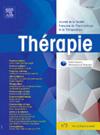从区域信号到戒毒警报。
IF 1.8
4区 医学
Q3 PHARMACOLOGY & PHARMACY
引用次数: 0
摘要
法国有多个监测系统,是其健康安全监测的基础。该系统旨在及早发现信号,并将其迅速转化为行动系统,以便采取及时、适当和有效的干预措施,保护公众健康。这些信号在经过初步风险评估并得到充分验证后,如果对公众健康构成潜在威胁,就会被视为警报,有必要采取适当的应对措施。法国毒瘾警戒网络(FAN)是专门为解决与使用精神活性物质(PAS)相关的并发症而建立的,包括药用和非药用精神活性物质,不包括酒精和烟草。该系统在欧洲是独一无二的,它提供的信息是最复杂的警戒系统之一,因为其范围广,与之相关的风险正成为一个日益重要的公共卫生问题。FAN 站在识别潜在信号的最前沿。自 1990 年以来,它一直与地区合作伙伴密切合作,特别是通过与当地专业人员合作,采用多源方法将各种来源的数据结合起来。在概述了成瘾药物警戒中心的任务和成瘾药物警戒信号检测的一般原则之后,本文将介绍最近涉及类似产品但不同识别方法或消费模式的实例:合成大麻素、硝氮茚、普瑞巴林、哌醋甲酯。这些例子表明,虽然存在地区差异,但法国其他地区发生的风险不容忽视,应在国家层面迅速传达信息,以采取预防措施。本文章由计算机程序翻译,如有差异,请以英文原文为准。
From regional signal to alert in addictovigilance
France has several monitoring systems that form the foundation of its health safety surveillance. This system is designed for the early detection of signals and their swift into an action system that enables timely, appropriate, and effective interventions to protect public health. These signals are considered alerts when sufficiently validated after an initial risk assessment and if they represent a potential threat to public health, necessitating an appropriate response. The French Addictovigilance Network (FAN) was established specifically to address complications associated with the use of psychoactive substances (PAS), both medicinal and non-medicinal, excluding alcohol and tobacco. This system, unique in Europe, provides information on one of the most complex vigilance systems due to its scope, and the risks associated with it are becoming an increasingly significant public health issue. FAN is at the forefront of identifying potential signals. It has been working closely with regional partners since 1990, particularly through a multi-source approach that combines data from various sources, in collaboration with local professionals. After outlining the missions of the addictovigilance centres and the general principles of signal detection in addictovigilance, this article will present recent examples involving similar products but different identifications or modes of consumption: synthetic cannabinoids, nitazene, pregabalin, methylphenidate. These examples demonstrate that while there are regional disparities, the risk of occurrence in other French regions should not be overlooked, and information should be rapidly communicated at the national level for preventive action.
求助全文
通过发布文献求助,成功后即可免费获取论文全文。
去求助
来源期刊

Therapie
医学-药学
CiteScore
3.50
自引率
7.70%
发文量
132
审稿时长
57 days
期刊介绍:
Thérapie is a peer-reviewed journal devoted to Clinical Pharmacology, Therapeutics, Pharmacokinetics, Pharmacovigilance, Addictovigilance, Social Pharmacology, Pharmacoepidemiology, Pharmacoeconomics and Evidence-Based-Medicine. Thérapie publishes in French or in English original articles, general reviews, letters to the editor reporting original findings, correspondence relating to articles or letters published in the Journal, short articles, editorials on up-to-date topics, Pharmacovigilance or Addictovigilance reports that follow the French "guidelines" concerning good practice in pharmacovigilance publications. The journal also publishes thematic issues on topical subject.
The journal is indexed in the main international data bases and notably in: Biosis Previews/Biological Abstracts, Embase/Excerpta Medica, Medline/Index Medicus, Science Citation Index.
 求助内容:
求助内容: 应助结果提醒方式:
应助结果提醒方式:


